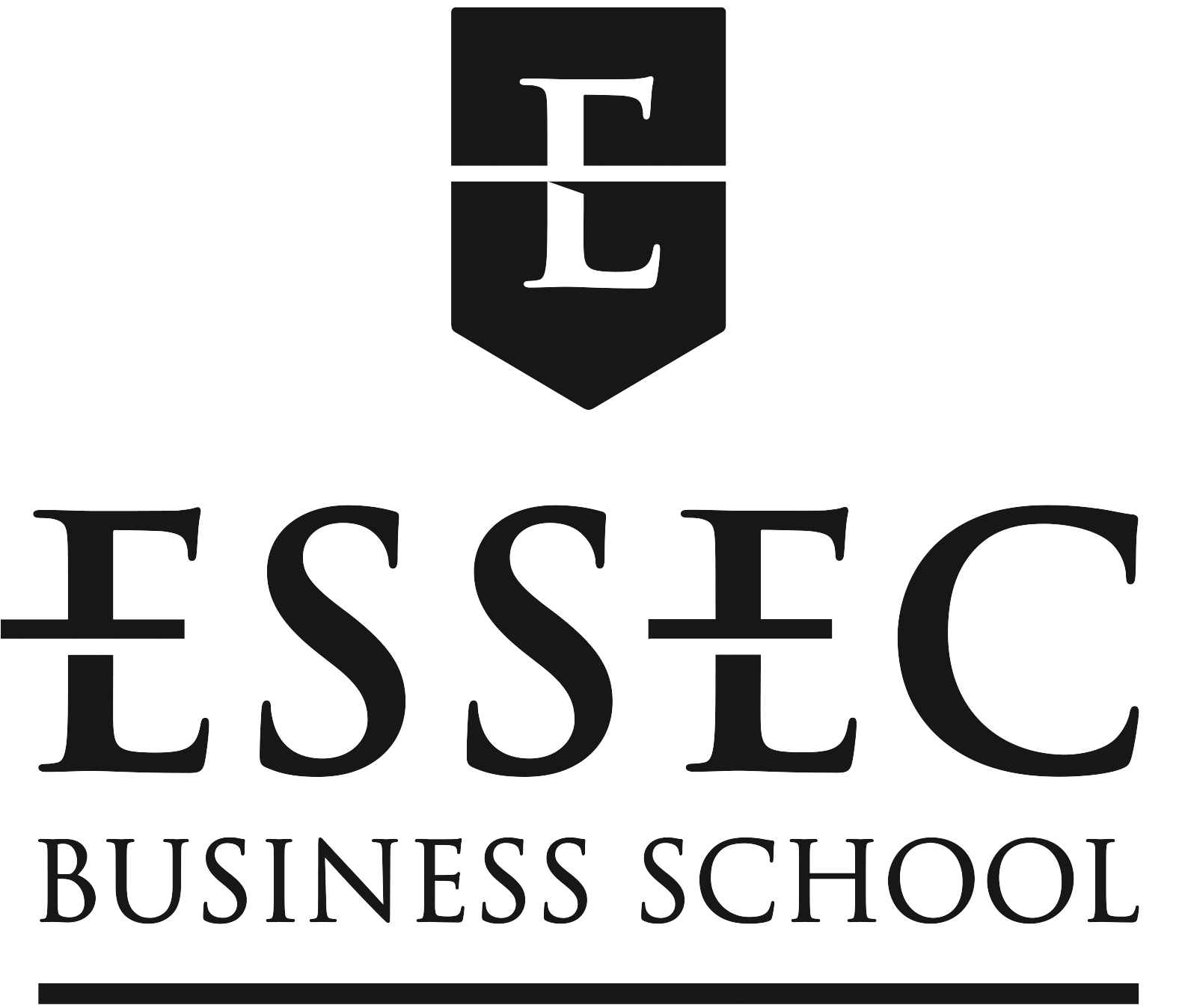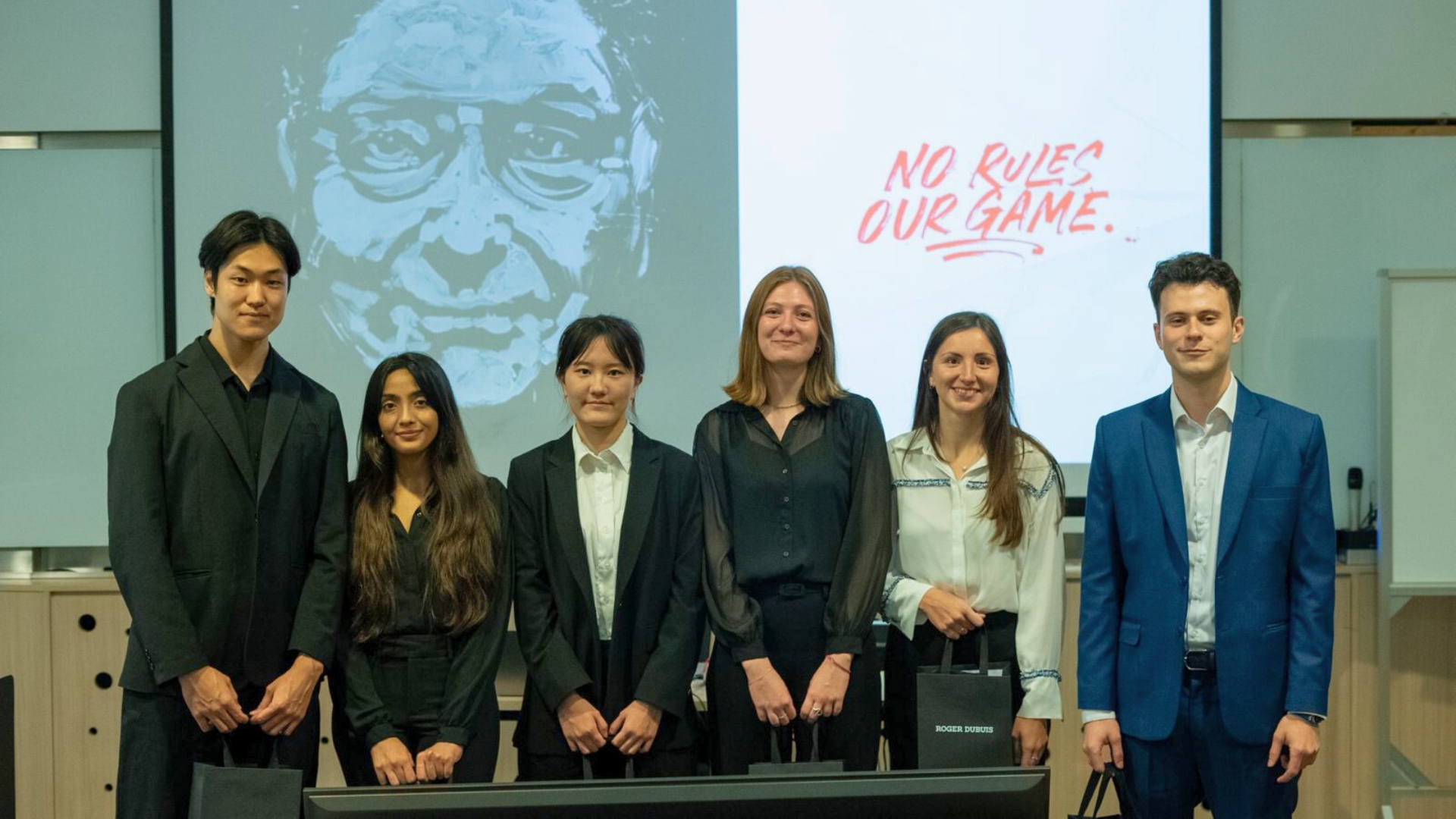- ESSEC Master in Management’s flexibility and specialized tracks support the transition from pharmacy to the business world.
- Starting at ESSEC Asia-Pacific offers greater international exposure.
- The intimate Asia-Pacific campus fosters close relationships and strong networks.
French nationals Zoé Rolland and Pierre Gosset studied pharmacy at Université de Paris to enter the healthcare field. While Zoé hopes to work in health economics, Pierre has goals of handling mergers and acquisitions in big pharma companies or working for a venture capitalist firm focusing on the biotech industry.
Yet, they knew technical training alone would not be sufficient to achieve their dreams.
“During pharmacy studies, we learn a lot about healthcare, regulation, chemistry, and diseases, but not about business,” Zoé explains, noting that the business aspect is equally important as “pharmaceutical companies have challenges just like other businesses.”
For both, the ESSEC Master in Management (MiM) program became the natural step to pave the way to the business world.
The Choice of ESSEC and the Asia-Pacific
This is firstly because of the program’s flexibility. With over 200 electives, 50 specialized tracks—one of which covers the healthcare domain—and up to four years to complete the program, they were confident they could explore various options and find certainty about their future careers.
The opportunity to start at the ESSEC Asia-Pacific campus in Singapore was also beautiful.
The international exposure would help improve their command of English and expose them to how business is conducted in Asia—a promising region where digital healthcare is rapidly growing.
Importantly, as both had lived in France almost all their lives, coming to Singapore was a chance to explore. “Understanding other countries, cultures, and markets is always positive,” Zoé says.
Pierre echoes these sentiments, sharing that during his undergraduate days, he hadn’t found the opportunity to do an internship or exchange program overseas.
Having visited Asia for travels in the past, he was also curious about what life in a multicultural, smart city like Singapore would be like.
Transitioning to a Business School in Asia
But what is life like in an island state so far from home? And how are they faring in business school?
One significant difference Zoé has found is in the rhythm of classes. At their previous school, they were graded primarily based on examinations.
Still, at ESSEC, the learning-by-doing approach means they are assessed based on projects and need to work consistently across the semester.
The mindset students have is also different. Compared to undergraduate days, they are more severe and career-focused about their work.
Diversity on campus also means that Pierre and Zoé have gotten to work closely with people from different cultures.
“It was exciting to see how different people work and think,” Pierre shares, adding that this motivated him to seek out teammates from different countries for his other projects.
Building Connections that Count
Hectic academic life aside, there is also plenty of room for fun. Pierre, for example, shares that he has participated in various campus life activities like beach cleaning and visiting local attractions like Marina Bay Sands.
Highlights so far also include events like the Global Village, which, as its name suggests, showcased cultures from around the world, and when the MiM students from India included the rest of the cohort in their celebrations for the Hindu festival, Diwali.
Being part of a more intimate cohort also has its advantages, Zoé adds, noting that “we have gotten to know each other very well, making it a great atmosphere to be in.”
At the same time, the ESSEC Asia-Pacific cohort remains plugged in with the more comprehensive, global ESSEC network through alumni events.
Through one of these events, Pierre connected with someone from APACMed, the regional association for the medical technology industry in Asia.
He was invited to a subsequent healthcare event and secured his first internship since coming to ESSEC Asia-Pacific—the first step toward his future goals.
“The ESSEC network is huge, so don’t underestimate it—leverage this to gain the information and advice you need,” he advises.
For him and Zoé, this global network and the depth of connections at the Singapore campus make ESSEC Asia-Pacific the place to be.
RELATED POSTS
Green is the New Gold: Giving SMIB Students An Edge in Sustainable Finance
Sebastian Sohn shares why sustainability matters in the Sustainable Finance course for ESSEC Master in Strategy and Management of International…
Three MiF Curriculum Features that Make the ESSEC Asia-Pacific Campus Stand Out
Student Ambassadors share how the ESSEC Master in Finance at Singapore has prepared them for the world of finance.
Freedom and Practicality Draw Students from Asia to the MiM Program at ESSEC APAC
From diverse backgrounds to common goals, students from ESSEC's Master in Management program are shaping their futures with flexible learning and…
The MMD 2024 Digital Marketing Challenge: A Taste of the Real World
The annual Digital Marketing Challenge is arguably the biggest highlight of the MSc Marketing Management and Digital program. Student Ambassador…
Three Ways ESSEC GBBA Students Can Make the Most of Their Exchange
Student Ambassador Sagarika Majumdar and alumna Manqi Zhao share their tips.
How the ESSEC MMD Program Makes Learning Practical and Relevant
Fresh graduates need help entering the workforce, as they need more experience and have a limited understanding of the industry. ESSEC Master in…







